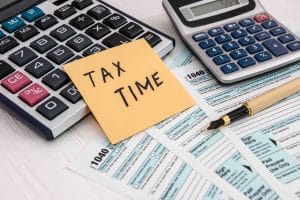Unpaid student loans: Can they garnish your tax refund to collect?
It isn’t only Millennials who have a lot of student loan debt. Millions of Americans from previous generations still have lots as well.
If you can’t pay your loans back, can the Department of Education – which guarantees the loans – go after your tax refund?
The short answer is yes.
To be sure, it is theoretically possible to get your
Last month, the Government Accountability Office (GAO) issued a report on
Many senior citizens – people 65 and older – also are still facing student loan repayment issues. GAO found that 870,000 are in that group.
The Department of Education (DOE) has been using collection tactics like garnishment to go after people who have defaulted on their loans.
DOE has been seizing Social Security benefits and tax refunds from people who have defaulted on their loans. In 2015, the amount seized from Social Security garnishment was $171 million.
The $171 million was a relatively small amount compared to the overall amount collected, which was a staggering $4.5 billion. But the trend of DOE going after tax refunds and Social Security benefits is expected to continue. This is especially the case since the IRS is now also using private debt collectors under a new program.






